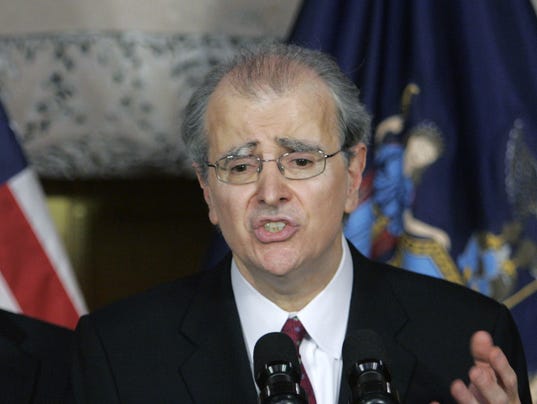Pro Bono News
Lippman, New York's top judge, used power for good (NY)
Wednesday, December 30, 2015
- Democrat & Chronicle
- Link: http://www.democratandchronicle.com
Lippman, New York's top judge, used power for good
Editorial Board 8:45 p.m. EST December 30, 2015

(Photo: AP file photo 2009)
Access to justice means that everybody — regardless of race, ethnicity or orientation, irrespective of wealth or poverty, whether we are mighty or weak — each and every one of us gets his or her day in court.
Those words, written by New York's Chief Judge Jonathan Lippman in his "State of the Judiciary 2015" report, sum up his own legacy.
For most people, Lippman is not a familiar name or face. But he is retiring as the new year rings in, and that should not go without notice. Lippman has been an extraordinary champion for true justice.
Lippman has presided over the Court of Appeals for the past seven years, after working his way up through the court system for nearly four decades. During that time, he learned a lot about the practical barriers that keep people from getting a fair shot within our justice system. And, as one of the most powerful judges in the nation, he used his position to do something about it, leading a "fight to close the justice gap."
In 2010, he established a task force to help find ways for poor people to get access to legal representation in civil cases, such as those involving housing, child support or personal safety. Public defenders are not typically provided in these cases. After five years, and much progress, the task force was converted to the Permanent Commission on Access to Justice earlier this year.
He devoted $85 million, or about 42 percent of his budget, toward increasing civil legal services. He imposed the nation's first pro bono requirement for law students, requiring them to perform 50 hours of free legal work before they are admitted to the bar. And he set up a scholarship program for law students who spend their last semester working with the poor; in its first year, students donated more than 48,000 hours.
Lippman implemented groundbreaking measures to help keep people in their homes during foreclosure proceedings, and to protect consumers from unscrupulous debt collectors.
He has been an outspoken advocate of allowing cameras back into New York courtrooms, in large part to help build understanding and trust with disadvantaged communities.
He has repeatedly pressed for laws that would prevent 16- and 17-year-olds from being prosecuted as adults, reform the bail system to keep people from languishing in jail, open grand jury proceedings and help avoid wrongful convictions.
Much of his work has been aligned with Unite Rochester's priorities, targeting systematic problems that overwhelmingly affect people of color. So, as he reaches the court's mandatory retirement age of 70, we wish him well and hope that he remains an active force for positive change.